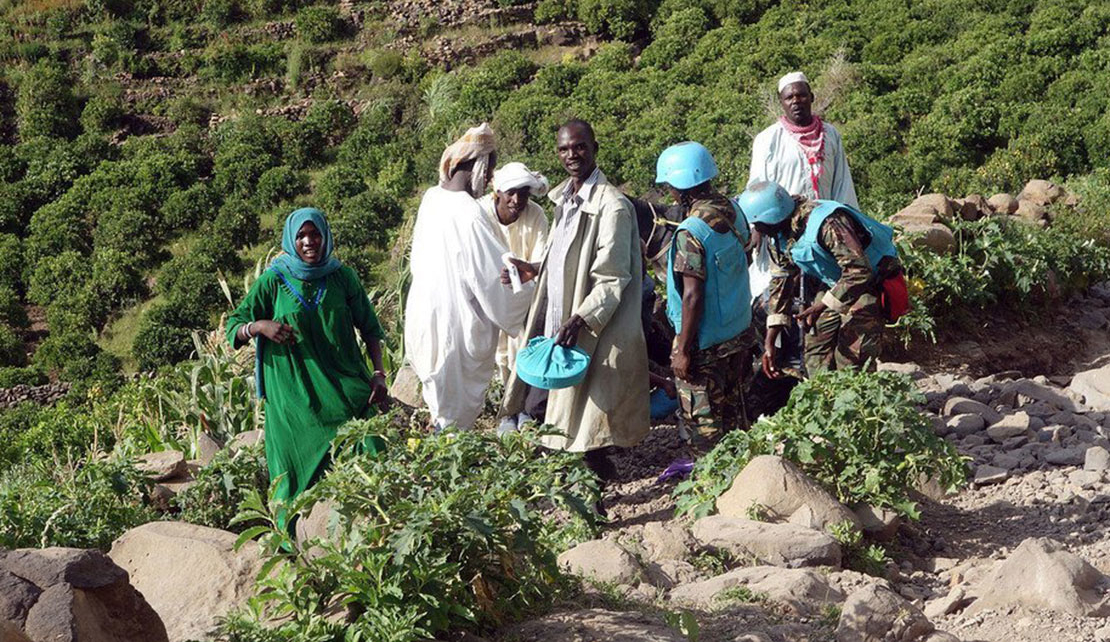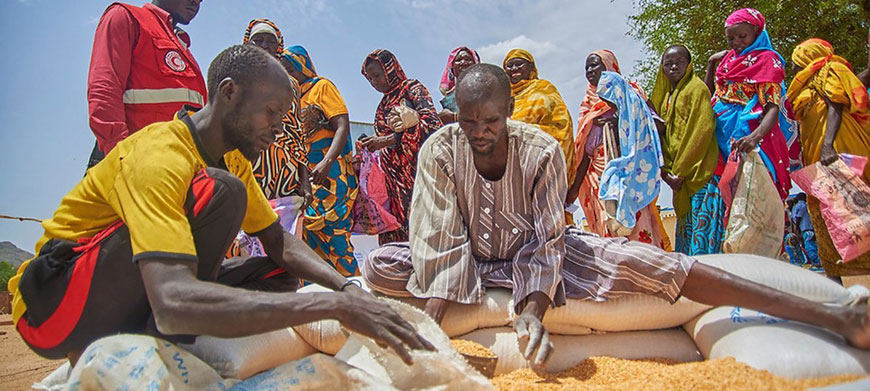AFRICA | Violence on the rise in Darfur following Sudan military takeover, but UN-AU peacekeeping mission maintains ‘robust posture’

Security across the volatile Darfur region of Sudan has deteriorated since last week’s military takeover in Khartoum, the UN Security Council heard on Wednesday, but the peacekeeping mission in Darfur has “remained vigilant” in the face of rising violence.
Jeremiah Mamabolo, Joint Special Representative for the UN-African Union Hybrid mission, UNAMID, updated members on events since the ousting of former president of 30 years, Omar al-Bashir, with news reports suggesting on Wednesday that he had now been transferred to prison.
Mr. Mamabolo said that with one General already forced out of office in the face of continuing protests, the daily curfew has now been lifted, and political detainees are due to be released, with a nationwide ceasefire now in place.
“Yesterday, the Chief Justice and the Attorney General were replaced”, he said, adding that the new military leader, General Abdel Fattah Al-Burnhan, had announced a “military transitional phase” which would last two year at most, before a handover to civilian control.
But protests are continuing he said, noting that some internally-displaced people, or IDPs in Darfur – where military action by the former president against civilians led to war crimes charges against him by the International Criminal Court a decade ago – had “engaged in violent acts” targeting Government locations, and those seen as collaborators with the former regime.
“Let me assure the Council that in the midst of all these developments, UNAMID has remained vigilant, maintaining a robust posture, particularly in the Jebel Marra area of responsibility, which is where we have peacekeeping troops”, he added.
The mission is currently drawing down, but the political landscape “has drastically changed, and has the potential to affect our mandate implementation going forward”, said the top official in Darfur, citing a postponement of a sector headquarters handover that was due to take place on Monday.
“The incidents of violence in Darfur IDP camps in reaction to the events in Khartoum, attest to the fragility of the security situation in Darfur, which had hitherto been increasingly calm and stable”, excepting Jebel Marra, said Mr. Mamabolo.
He urged Council members that the international community now “has an opportunity to initiate and sustain dialogue with the new authorities in Sudan. This would help create a conducive environment for UNAMID’s departure, and the international community’s follow-on engagement in Darfur.
 da OCHA/Sari Omer A WFP food distribution to Sudanese IDPs near the Murta settlement, Kadugli, in South Kordofan state. (May 2018)Regular operations’ continue for humanitarians in Sudan: UN deputy relief chief
da OCHA/Sari Omer A WFP food distribution to Sudanese IDPs near the Murta settlement, Kadugli, in South Kordofan state. (May 2018)Regular operations’ continue for humanitarians in Sudan: UN deputy relief chief

Although regular operations have not been affected by the political crisis, the UN deputy Emergency Relief Coordinator told Council members that humanitarians across Sudan were “very concerned about the protection of civilians” - particularly in Darfur, where localized fighting is continuing.
At this critical time, it is essential to ensure the people of #Darfur & the rest of #Sudan receive the assistance they need. Briefed Security Council today, calling for #humanitarian access & sustained support for millions in need. My remarks: https://t.co/2wsIgP5jnG pic.twitter.com/vcOhhIZMGU
— Ursula Mueller (@UschiMuller) April 17, 2019
The start of the school year has been delayed she noted, and the country’s burgeoning economic crisis “has had a significant impact” on need-levels nationwide, as one of the main drivers of the initial mass-protests that began in December, against the rule of the former president.
She noted that rampant inflation, currency devaluation and soaring prices had contributed to rising numbers of those in need, with 5.8 million now food insecure, up from 3.8 million, this time a year ago. This includes 1.9 million in Darfur; a number likely to rise with the onset of the lean season in May.
In all, around 1.9 million remain displaced by fighting she noted, the vast majority in Darfur. “More support is needed” from the international community, she stressed, and humanitarians are appealing for $1.1 billion to help the most vulnerable.
Ms. Muller reminded members that Sudan had been a vital conduit for aid into South Sudan, and as host country to around 150,000 refugees from its war-ravaged neighbour. “We continue to call on all parties in Sudan to allow the humanitarian community to assist people in need”, she said.
“We also call on the Government to take further measures to improve the operating environment for humanitarian organizations, especially the lifting of bureaucratic impediments to movement”.
